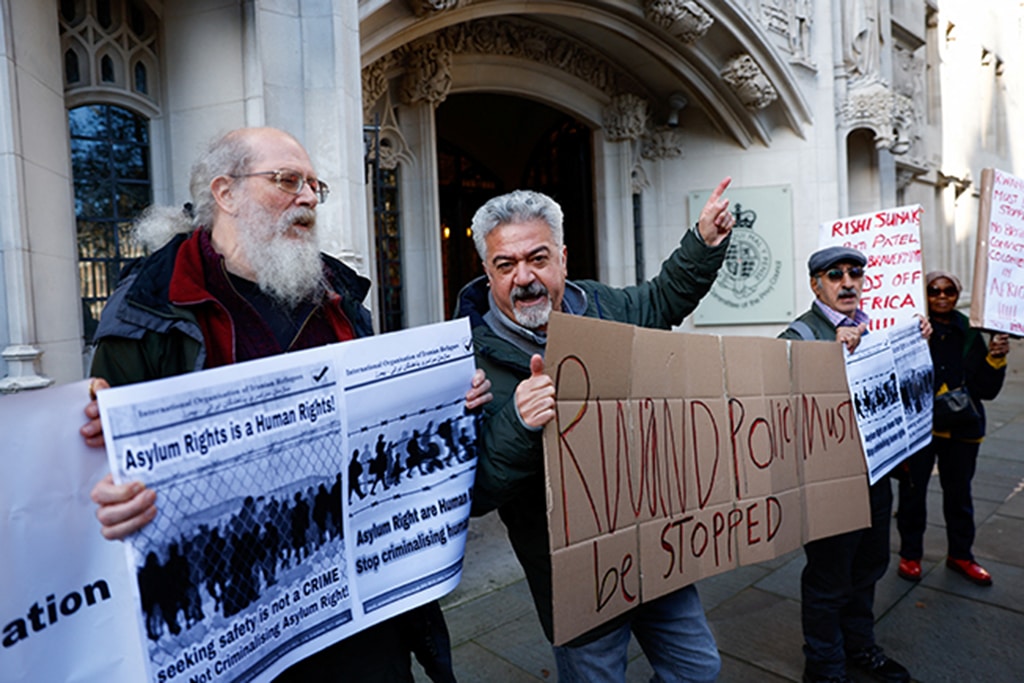British Prime Minister Rishi Sunak said on Wednesday he would sign a new treaty with Rwanda to resurrect his plans to send asylum seekers to the East African country after the Supreme Court rejected an original scheme as unlawful.
Some politicians in the governing Conservative Party challenged Sunak to find a way to revive what has been a centrepiece of the government’s immigration plan, and a handful warned he could face a potential leadership challenge.
Sunak said that the government was already working on a new treaty with Rwanda that would address the points made by the court and, if necessary, he would rewrite domestic legislation.
That raises the prospect of the government seeking to alter Britain’s membership of the European Convention on Human Rights and other international treaties that stood in the way of the policy being deemed lawful by British courts.
“The government has already been working in advance on a new treaty with Rwanda, which we will finalise in light of today’s judgment,” Sunak told parliament.
“If it becomes clear that our domestic legal frameworks or international conventions are still frustrating plans at that point, I am prepared to change our laws.”
The new treaty with Rwanda would be brought to parliament in the coming days and this would provide the necessary “reassurances” to address the Supreme Court’s concerns about Rwanda’s asylum system, Sunak’s spokesman said.
It is possible that the treaty could be challenged again in the courts, the spokesman added.
‘DEAD AND BURIED’
In the ruling, the Supreme Court judges said Rwanda had to make “significant changes” before it could be considered a safe third country, highlighting judicial failings as well as its compliance with other international treaties.
James Cleverly, Britain’s new interior minister, said the Rwanda deal would be upgraded to a legally-binding treaty from a memorandum of understanding, and would ensure that anyone removed to Rwanda could not be sent to another country apart from Britain.
However, it was not clear what would happen to those who were denied asylum by Rwanda, nor was it clear whether making the agreement a treaty would assuage the court’s concerns.
“You would have to have Rwanda promising to fix all these things, but even that on its own I am not sure, reading the judgment, would be enough to make it safe,” Gavin Phillipson, Professor of law at the University of Bristol, told Reuters.
Phillipson added that evidence would also be needed to demonstrate Rwanda was addressing the systemic issues cited by the Supreme Court in its ruling.
Nor was it enough for some Conservative members of parliament. One lawmaker, Jonathan Gullis, said the treaty plan did not go far enough and he was disappointed by the government’s refusal to consider to pulling out of international conventions.
Another politician said because the new treaty would face legal challenges it was unlikely deportation flights would leave before the next election when the opposition Labour Party, who say they will abandon the plan, are expected to win power.
“I think the policy is dead and buried,” he said.







Click here to change your cookie preferences